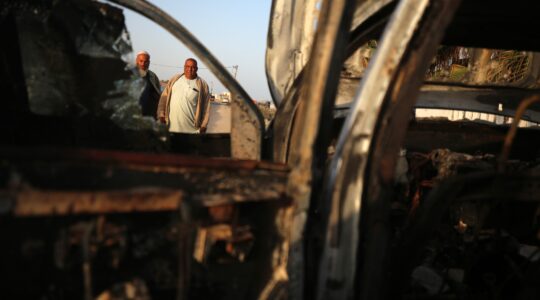BUENOS AIRES, Nov. 29 (JTA) At least 180 Nazi war criminals settled in Argentina during and after World War II, according to a state panel probing Nazi activities in the country.
But even as the panel issued its final report this week, some of its members said the number is probably a lot higher and called for more research on the subject.
The report focuses on such diverse issues as Argentina’s immigration policies, Nazi investments in Argentina and the influence of Nazism on Argentine jurisprudence.
Among the panel’s findings:
The Nazis who found refuge in Argentina included 30 Germans, 50 Croats and 100 officials from France and Belgium;
Argentina’s political and intellectual climates in the 1930s and 1940s were receptive to Nazi and fascist ideas;
Argentina’s air force and military industries attracted Nazi technicians; and
Undetermined quantities of looted gold and art entered Argentina during and after the war from Nazi and fascist countries.
The Commission for the Exposure of Nazi Activities in Argentina was created in May 1997, shortly after President Carlos Menem opened a dark chapter in Argentina’s history by releasing official records about the postwar arrivals of Nazi officials.
The panel also was created in response to a worldwide search for assets looted from Jews by the Nazis.
The commission’s mandate ends Dec. 10, when Menem leaves office, but members of the commission say its work should continue well into the next millennium.
“We have made important inroads, and some aspects have been fully researched,” said Sergio Widder, Latin America director for the Los Angeles- based Simon Wiesenthal Center and a member of the commission.
“But there are other issues that need to be looked into further,” he added, saying more research should be devoted to the arrival in Argentina of Nazi officials and looted Jewish assets.
The continuation of the commission’s work will be up to President-elect Fernando de la Rua.
According to Widder, de la Rua has been very receptive to the idea.





